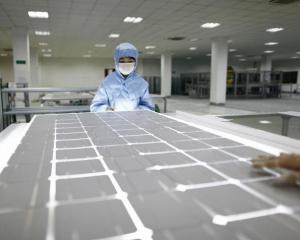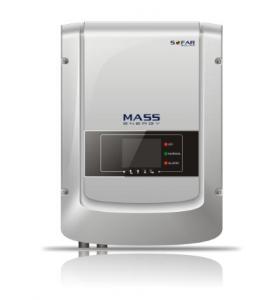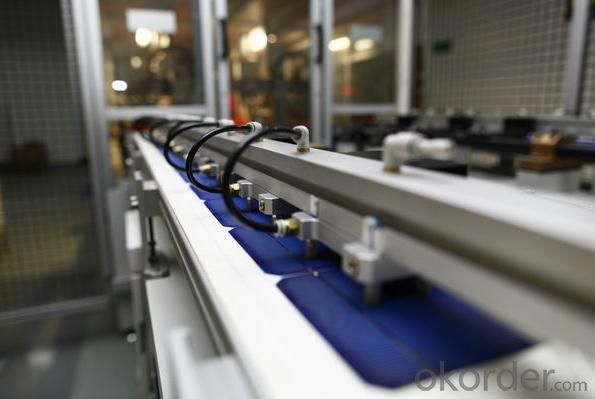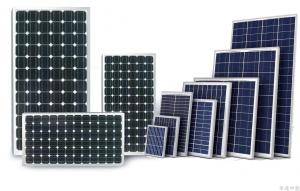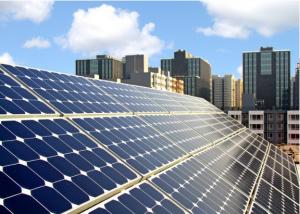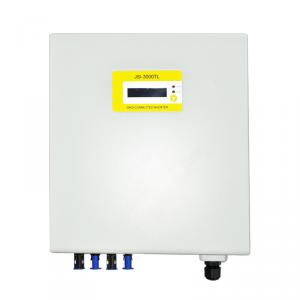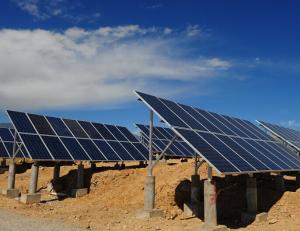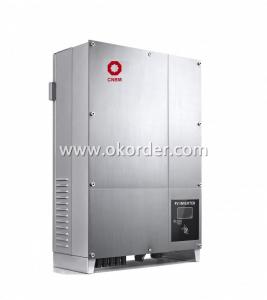3800W Grid-tied Solar PV Inverter 3680TLM
- Loading Port:
- Shekou
- Payment Terms:
- TT or LC
- Min Order Qty:
- 10 unit
- Supply Capability:
- 10000 unit/month
OKorder Service Pledge
OKorder Financial Service
You Might Also Like
3800W Grid-tied Solar PV Inverter 3680TLM
High-yield
•Max 97.6%efficiency
•Real timeprecise MPPT algorithm for max harvest
•Wide inputvoltage operation range from 100V to 550V
•Two MPPtrackers for flexible PV panel configuration
3800W Grid-tied Solar PV Inverter Low maintenance cost
•Rust-freealuminumcovers
•Flexiblemonitoring solution
•Multifunctionrelay can be configured to show various inverter information
3800W Grid-tied Solar PV Inverter Flexible and economicalsystem solution
•Free siteselection due to IP65
•Easy installationand maintenance due to “Plug & Play” connection
•Interfaceselection-Wi-Fi/RS485/DryRelay for more flexible configuration and system monitoring
•4” LCD display
3800W Grid-tied Solar PV Inverter Intelligent grid management
•Reactive power adjustable
•Self powerreducerwhenover frequency
•Remoteactive/reactivepower limit control
3800W Grid-tied Solar PV Inverter Datasheet
Technical Data | SOFAR 3000TLM | SOFAR 3680TLM | SOFAR 4000TLM | SOFAR 4600TLM | SOFAR 5000TLM |
Input (DC) | |||||
Max. Input Power | 3100W | 3800W | 4160W | 4800W | 5200W |
Max. DC power for single MPPT | 2000 (200V-500V) | 2400 (200V-500V) | 2600 (200V-500V) | 3000 (200V-500V) | |
Number of independent MPPT | 2 | ||||
Number of DC inputs | 1 for each MPPT | ||||
Max. Input Voltage | 600V | ||||
Start-up input voltage | 100V(+/-5V) | ||||
Rated input voltage | 360V | ||||
Operating input voltage range | 100V-550V | ||||
MPPT voltage range | 160V-500V | 165V-500V | 175V-500V | ||
Max. Input current per MPPT | 10A/10A | 12A/12A | 13A/13A | 15A/15A | |
Input short circuit current per MPPT | 12A | 14A | 16A | 18A | |
Output(AC) | |||||
Rated power(@230V,50Hz) | 3000VA | 3680VA | 4000VA | 4600VA | 5000VA |
Max. AC power | 3000VA | 3680VA | 4000VA | 4600VA | 5000VA |
Nominal AC voltage | L/N/PE, 220, 230, 240 | ||||
Nominal AC voltage range | 180V-270V | ||||
Grid frequency range | 44~55Hz / 54~66Hz | ||||
Active power adjustable range | 0~100% | ||||
Max. Output Current | 13A | 16A | 17.5A | 20A | 22A |
THDi | <3% | ||||
Power Factor | 1(Adjustable +/-0.8) | ||||
Performance | |||||
Max efficiency | 97.6% | ||||
Weighted eff.(EU/CEC) | 97.1%/97.3% | ||||
Self-consumption at night | <1W | ||||
Feed-in start power | 20W | ||||
MPPT efficiency | >99.5% | ||||
Protection | |||||
DC reverse polarity protection | Yes | ||||
DC switch | Optional | ||||
Protection class / overvoltage category | I/III | ||||
Input/output SPD(II) | Optional | ||||
Safety Protection | Anti-islanding, RCMU, Ground fault monitoring | ||||
Certification | CE, CGC, AS4777, AS3100, VDE 4105, C10-C11, G83/G59 (more available on request) | ||||
Communication | |||||
Power management unit | According to certification and request | ||||
Standard Communication Mode | Wifi+RS485 | ||||
Operation Data Storage | 25 years | ||||
General data | |||||
Ambient temperature range | -25℃ ~ +60℃ | ||||
Topology | Transformerless | ||||
Degree of protection | IP65 | ||||
Allowable relative humidity range | 0 ~ 95% no condensing | ||||
Max. Operating Altitude | 2000m | ||||
Noise | <25dB | ||||
Weight | 18kg | ||||
Cooling | Nature | ||||
Dimension | 344×478×165mm | ||||
Warranty | 5 years | ||||
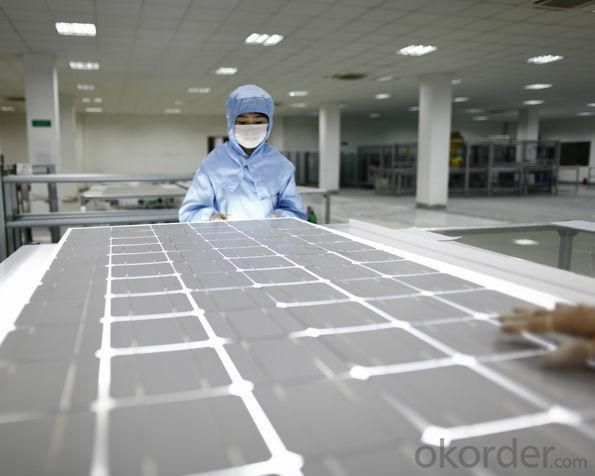
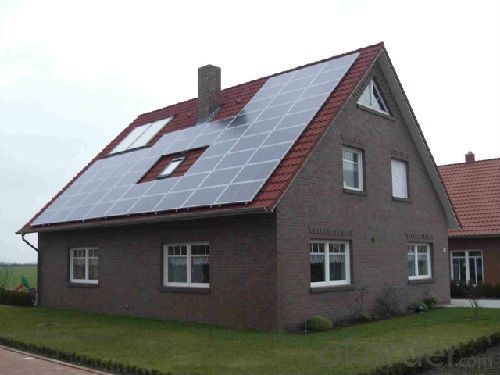
- Q: What is the role of a frequency regulation feature in a solar inverter?
- The role of a frequency regulation feature in a solar inverter is to ensure that the power output from the solar panels matches the grid's frequency and voltage requirements. It helps maintain a stable and consistent frequency, allowing for seamless integration of solar power into the existing electrical grid.
- Q: What is the role of a solar inverter in power quality management?
- The role of a solar inverter in power quality management is to convert the direct current (DC) generated by solar panels into alternating current (AC) that can be used to power electrical devices. Additionally, solar inverters play a crucial role in managing and maintaining the quality of power supplied to the grid, ensuring it meets the required voltage and frequency standards. They help in mitigating issues like voltage fluctuations, harmonics, and power factor imbalances, thereby improving the overall power quality and stability of the electrical system.
- Q: Can a solar inverter be used in regions with extreme weather conditions?
- Yes, solar inverters can be used in regions with extreme weather conditions. However, it is important to choose an inverter that is specifically designed and rated for such conditions. Inverters with high-quality components and robust construction can withstand extreme temperatures, humidity, and other weather-related challenges. Additionally, proper installation and maintenance practices are crucial to ensure the longevity and optimal performance of the inverter in extreme weather conditions.
- Q: Can a solar inverter be used off-grid?
- Yes, a solar inverter can be used off-grid. Off-grid systems typically include a solar panel array, a charge controller, batteries for energy storage, and an inverter to convert the stored DC (direct current) electricity from the batteries into AC (alternating current) electricity for use in off-grid applications. The inverter plays a crucial role in converting the DC power from the solar panels or batteries into usable AC power, making it possible to power various appliances and devices off-grid using solar energy.
- Q: How does a solar inverter handle different temperature conditions?
- A solar inverter is designed to handle different temperature conditions by incorporating various features and mechanisms. Firstly, it is equipped with a temperature sensor that continuously monitors the inverter's internal temperature. If the temperature exceeds a certain threshold, the inverter activates cooling mechanisms such as fans or heatsinks to dissipate the heat and prevent overheating. Additionally, the inverter's components are selected and designed to withstand a wide range of temperatures, ensuring their functionality and longevity even in extreme conditions. Furthermore, modern inverters often have built-in protective measures like thermal derating, which reduces the inverter's power output as the temperature rises, ensuring it operates within safe limits. Overall, solar inverters are engineered to adapt and operate efficiently in varying temperature conditions for optimal performance and reliability.
- Q: Can a solar inverter be used with a solar-powered water purification system?
- Yes, a solar inverter can be used with a solar-powered water purification system. A solar inverter is responsible for converting the direct current (DC) electricity produced by solar panels into alternating current (AC) electricity that can be used to power various appliances and systems. In the case of a solar-powered water purification system, the solar inverter can convert the DC electricity generated by the solar panels into AC electricity, which can then be used to power the water purification system's pumps, filters, and other components. This allows the system to operate efficiently and effectively using renewable solar energy.
- Q: What is the role of a power control feature in a solar inverter?
- The role of a power control feature in a solar inverter is to efficiently manage and optimize the power output generated by the solar panels. It helps regulate the flow of electricity, maintaining a stable voltage and frequency, while also ensuring that the maximum power point tracking (MPPT) is achieved. This feature allows for better performance, increased energy production, and the ability to adapt to changing sunlight conditions, ultimately maximizing the overall efficiency of the solar inverter system.
- Q: Are all solar inverters compatible with all solar panels?
- No, not all solar inverters are compatible with all solar panels. The compatibility between inverters and panels depends on various factors such as voltage, power rating, and technology used. It is important to ensure that the inverter you choose is specifically designed to work with the type and specifications of the solar panels you have.
- Q: Are there any limitations on the angle of the solar panels when using a solar inverter?
- Yes, there are limitations on the angle of the solar panels when using a solar inverter. The angle at which solar panels are installed can affect their efficiency and overall performance. Ideally, solar panels should be installed at an angle that allows them to receive maximum sunlight throughout the day. Most solar panels are designed to work optimally when installed at an angle that is equal to the latitude of the location. This angle allows the panels to capture the most sunlight during peak hours. However, this is not a strict rule and variations are possible depending on the specific location and climate conditions. If solar panels are installed at an angle that is too steep or too shallow, it can result in reduced energy production. Steep angles may cause the panels to lose sunlight during certain times of the day, while shallow angles may not allow for optimal sunlight absorption. Additionally, extreme angles can also increase the risk of damage from wind or other weather conditions. It is important to note that modern solar inverters often come with advanced tracking and monitoring technologies that can adapt to different panel angles and orientations. These features can optimize energy production by adjusting the inverter settings based on the real-time performance of the panels. Overall, while there are limitations on the angle of the solar panels, it is crucial to ensure that they are installed in a way that maximizes their exposure to sunlight throughout the day to achieve the highest energy production possible.
- Q: Can a solar inverter be used with a grid-interactive system?
- Yes, a solar inverter can be used with a grid-interactive system. In fact, a solar inverter is an essential component of a grid-interactive system as it converts the direct current (DC) electricity generated by solar panels into alternating current (AC) electricity that can be used by household appliances and fed back into the grid when there is excess energy. The inverter also helps manage the flow of electricity between the solar panels, battery storage (if present), and the grid to ensure efficient and reliable power supply.
Send your message to us
3800W Grid-tied Solar PV Inverter 3680TLM
- Loading Port:
- Shekou
- Payment Terms:
- TT or LC
- Min Order Qty:
- 10 unit
- Supply Capability:
- 10000 unit/month
OKorder Service Pledge
OKorder Financial Service
Similar products
Hot products
Hot Searches
Related keywords
